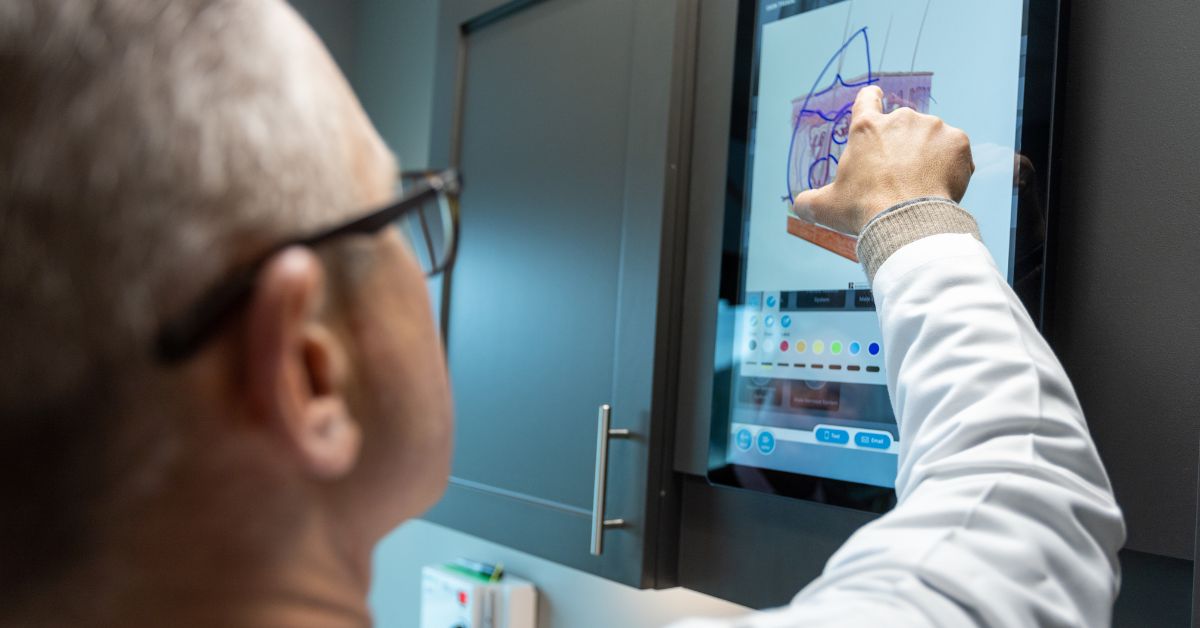Why is Merkel Cell Carcinoma Skin Cancer So Dangerous?

Dangers of Merkel Cell Carcinoma
Merkel cell carcinoma is a very rare type of skin cancer—but it’s also one of the most aggressive.
What is Merkel Cell Carcinoma Skin Cancer?
Merkel cell carcinoma (MCC) is named after the Merkel cells, which are located at the base of the outermost layer of the skin. Merkel cells play a pivotal role in our sense of touch. MCC originates when these cells start to grow uncontrollably.
One of the defining traits of MCC is its aggressive nature. It grows rapidly and has the potential to spread to other parts of the body at an accelerated pace. Compared to other skin cancers, such as basal cell carcinoma or squamous cell carcinoma, MCC stands out for its severity and the challenges it presents for early detection and treatment.
What Causes Merkel Cell Carcinoma?
The primary cause behind the malignant transformation of these cells remains largely unknown. However, researchers have identified a connection between the Merkel cell polyomavirus (MCPyV) and a majority of MCC cases. In addition, prolonged exposure to ultraviolet light, a weakened immune system, and certain genetic factors can also contribute to the development of MCC.
What Makes Merkel Cell Carcinoma So Dangerous?
Here are 5 reasons why Merkel cell carcinoma is considered one of the most dangerous forms of skin cancer:
- Aggressiveness and rapid growth. Unlike some other forms of skin cancer that might take years to present noticeable symptoms, MCC can manifest and grow visibly within weeks. The rapid growth of malignant cells means that a timely diagnosis is even more crucial.
- Difficult early detection. One of the most challenging aspects of MCC is its ability to go unnoticed in its early stages. Its initial presentation might be as innocuous as a small, painless lump on the skin. Patients might dismiss it as a simple cyst or another harmless skin anomaly. MCC’s deceptive nature means that by the time the carcinoma is diagnosed, it may have already advanced to a more severe stage.
- Unexpected locations. MCC’s ability to grow in areas that aren’t as frequently exposed to the sun, such as the buttocks or thighs, means that it might go unnoticed until it reaches an advanced stage.
- Risk of metastasis. MCC is notorious for its ability to metastasize, or spread, to other parts of the body. When the cancer cells invade the lymph nodes, there is an increased risk of cancer traveling to distant organs, making treatment more complex and reducing the potential for a full recovery.
- High recurrence rate. Even after successful treatment, patients with MCC face the threat of recurrence. MCC has a higher propensity to return compared to many other types of skin cancer, so regular checkups and monitoring are very important after the initial treatment.
How is Merkel Cell Carcinoma Treated?
When Merkel cell carcinoma is identified and addressed properly, the chances of a successful recovery are significantly heightened. However, a delay in diagnosis can mean the need for more aggressive treatments and a potentially less favorable outcome.
If detected in its nascent stage, the prognosis for MCC can be considerably improved. Early treatment often involves surgical removal of the tumor to ensure that the cancer doesn’t get the opportunity to spread to other parts of the body. Radiation therapy might also be recommended to eliminate any remaining cancer cells to help reduce the risk of recurrence.
Contact Franks Dermatology for a Skin Evaluation
Merkel cell carcinoma is a perfect example of the unpredictable—and often formidable—challenges posed by skin cancers. Its swift growth, potential for metastasis and recurrence, and deceptive initial presentation make it crucial that it is detected and treated in time.
Regular appointments with your dermatologist are an essential step in detecting skin cancer. If you or a loved one has concerns about any skin anomalies, don’t hesitate to contact Franks Dermatology. Call us at (501) 246-1042 to schedule an appointment at our Little Rock office. Our dedicated team of experts will be on your side through detection, diagnosis, and treatment.
